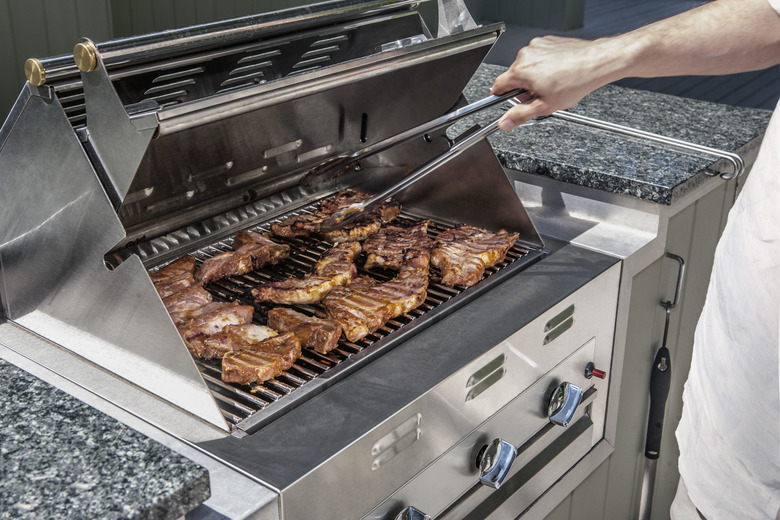Can Propane Tanks Freeze?
The propane you use to fire your barbecue and heaters is in the vapor state, but inside the tank it's pressurized, so it's a liquid. The liquid turns to a solid at -306°F (-188°C), and while temperatures that cold might happen on a cold night on Mars, they'll never happen in your backyard.
That doesn't mean that terrestrial temperatures can't cause freezing problems. The boiling point of propane is -44°F (-42°C), and if the temperature is colder than that, the liquid inside the tank won't vaporize. Those kinds of temperatures do occur on Earth, so you have to be ready for them because when it's that cold, you need your propane.
It Isn't Just the Propane That Can Freeze
It Isn't Just the Propane That Can Freeze
When a propane tank freezes, the liquid inside the tank won't vaporize, but when it's that cold, water turns to ice. Therefore, if you keep your propane tanks outside, the propane temperature may be warm enough for vaporization, but the components of the tank can freeze. Snow might settle on the handle, valve or regulator, partially melt during the day and then freeze up after a cold snap.
This can happen even if you keep the tank in an enclosure. If the air is humid, condensation can settle on the tank and freeze at night. The handle can become stuck, and you might not be able to turn the gas on or off. Moreover, the vent hole in the regulator can get blocked, and if the regulator isn't working, you might not be able to get any gas.
How to Prevent Propane Freezing
How to Prevent Propane Freezing
At temperatures above -44°F, it's the pressure inside the tank that maintains the propane in the liquid state, but the pressure drops when the temperature drops. If you keep a pressure gauge on the tank, you can monitor that pressure. What do you do if you notice a significant drop in pressure? The answer is to fill the tank.
A propane tank is most likely to freeze when the propane supply is low because there is more vapor in the tank. If the tank is full, the bulk of the propane is already in the liquid state, so the pressure won't be affected by temperature.
A propane tank can freeze even in warm temperatures if you draw too much at once. When you let propane out of the tank, the temperature in the tank drops because evaporation is an endothermic process, meaning it draws heat from the surroundings. Propane regulator problems that allow too much gas to escape at once can be responsible for freezing.
How to Protect Propane Tanks in Cold Weather
How to Protect Propane Tanks in Cold Weather
Propane is flammable, so it's dangerous to use conventional heat sources around your propane tank. The best way to keep the tank warm is to wrap it with a warming blanket designed for propane tanks. You can buy a blanket for your 5-gallon bottle at camping supply outlets or hardware stores. Some of these have electric elements to provide active heat, and others are just insulating blankets.
If you keep your bottle outside overnight during snowy weather, be sure the blanket covers the valve and the valve handle. Prevent propane tank frost by keeping the regulator in good working condition. The vent should be facing down to prevent water, ice and snow from collecting around it.
In a pinch, you can protect the valve and the regulator by covering them with an old milk carton or a rag. If you do this, remember to leave the regulator vent hole unobstructed.
